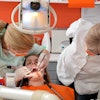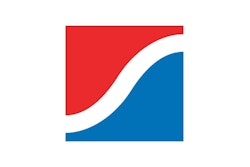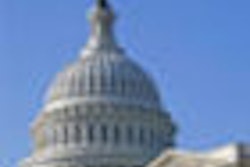
Medicaid providers in Iowa are working to become the first in any state to obtain U.S. government incentives for switching to electronic health records (EHRs). The incentives -- which can total up to $63,750 over a six-year period and are part of the American Recovery and Reinvestment Act of 2009 -- are intended to defray the cost of implementing an EHR system.
And Kaaren Vargas, DDS, PhD, a pediatric dentist based in Iowa City, is in line to be the first dentist in the state to take advantage of them.
"To my knowledge, I'm the only dentist applying for this right now," Dr. Vargas told DrBicuspid.com. "I think it's because the software system I'm using is not only for dental, it's for chiropractic, ophthalmology, and many others."
Dr. Vargas has been using MacPractice MD for two years now. Once this EHR software package obtains final certification from the Office of the National Coordinator for Health Information Technology (ONC) -- which is expected to come before the end of January -- Dr. Vargas can complete the final application for funding.
"It's in the final stages, as opposed to dental-only software," she said. "But the Certification Commission for Health Information Technology (CCHIT) is working on developing its program for dentists."
Government certification
CCHIT is one of six U.S. organizations authorized to test and certify EHR products.
If U.S. healthcare providers -- including dentists -- aren't using a certified EHR product, they will not qualify for the incentive funds. At present, there are no certified EHR products for dentists. But as Dr. Vargas has demonstrated, there are ways around this.
“It will be great for my practice since we've already been using EHRs.”
— Kaaren Vargas, DDS, PhD
"ONC published a final rule last July of what constitutes certified EHR technology, so the criteria and standards are there," explained Sue Reber, marketing director at CCHIT.
But there has been some confusion in the dental industry about EHR certification. In an October 2010 article, Steve Roberts, director of core products and electronic services at Henry Schein told DrBicuspid.com that, "on the dental side, the requirements within a dental practice have yet to be defined, and certification or standards committees still don't exist."
For now, the guidelines are the same across different medical professions, according to Reber.
"No attempt was made to account for any specialty practice during the development of the first set of criteria and standards," she said. "There is an allowance in the quality measure area for some choice, for excluding the business from certain practices if they don't make sense."
Medicaid a key factor
In addition to the certification requirements, a practice must be able to demonstrate that 30% of its patients are entirely Medicaid-insured for a three-month period to qualify for the incentives.
"The way you calculate it is interesting because a lot of Medicaid patients are dually insured," Dr. Vargas explained. "Those instances don't count. Qualified patients have to be purely Medicaid insured and make up 30% of a practice's clientele during a three-month period. And you have to carefully document it in case of an audit."
Providers also have to demonstrate their use of EHRs, as well as costs associated with implementation and upgrades totaling more than $4,000, she added.
"I didn't start taking Medicaid patients because of this incentive, but it will be great for my practice since we've already been using EHRs for two years," Dr. Vargas said. "Especially when you consider reimbursement rates for Medicaid, you can't help but think, 'Really? The government is going to give me money for something I'm already doing?' "
Approximately 380,000 Iowans are covered by the Iowa Medicaid Enterprise and more than half are children, according to the Department of Human Services. Jennifer Vermeer, the state's Medicaid director, estimates that Iowa Medicaid providers will receive at least $120 million in incentives related to EHR implementation over the next six years.
Three other states -- Oklahoma, Louisiana, and Kentucky -- are taking part in the EHR incentives program. The goal is to link patients with their doctors' offices more directly to maintain lifestyle regimens, streamline billing practices, and prevent superfluous actions such as duplicate testing.
"Medicaid has been on the forefront, in my opinion, of trying to spread the word to all practitioners, trying to get them to switch to EHRs," Dr. Vargas said. "They've been very vocal."
Copyright © 2011 DrBicuspid.com



















